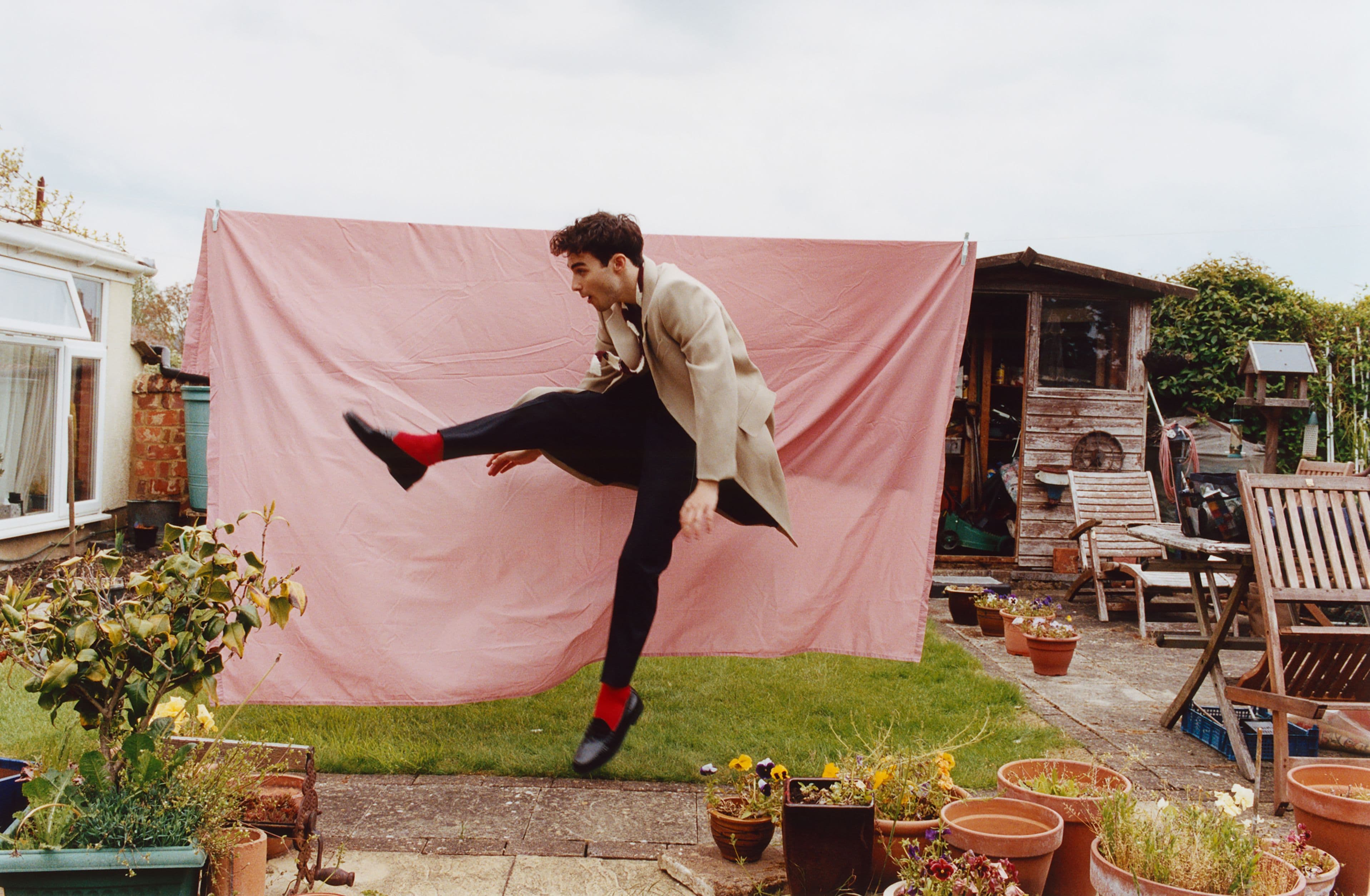
Coat by AMI Alexandre Mattiussi. Vest by Sunspel. Vintage pants by JW Anderson. Tie by S.S. Daley. All socks throughout by Falke. Shoes, worn throughout, by G.H. Bass & Co.
Alfie Templeman Is More Than Pop’s Next Big Thing
How many Alfie Templemans are there?
The eighteen-year-old songwriter, producer, multi-instrumentalist, and burgeoning pop star recently put out a new “mini-album,“ Forever Isn’t Long Enough, his fourth medium-format project since he began creating and releasing music in 2016. Along the way, he’s collected a number of top chart positions, millions of streams, thousands of social followers, nods from tastemakers, and attention from YouTube’s and Apple’s emerging artist programs.
Despite all the shine and promise, one of Templeman’s biggest concerns is how to stay human—stay himself—through it all. “The fact that everything is so online-based, it can feel as though it’s harder to connect with people on the same level as you could at a concert or something,“ he says of the shift to digital, which accelerated at warp speed last year. “It’s almost as if you’ve got two different bodies, yourself in the present and also something on Instagram, Twitter, whatever. You can connect with someone on the internet and almost forget that they’re a real person in the world.“
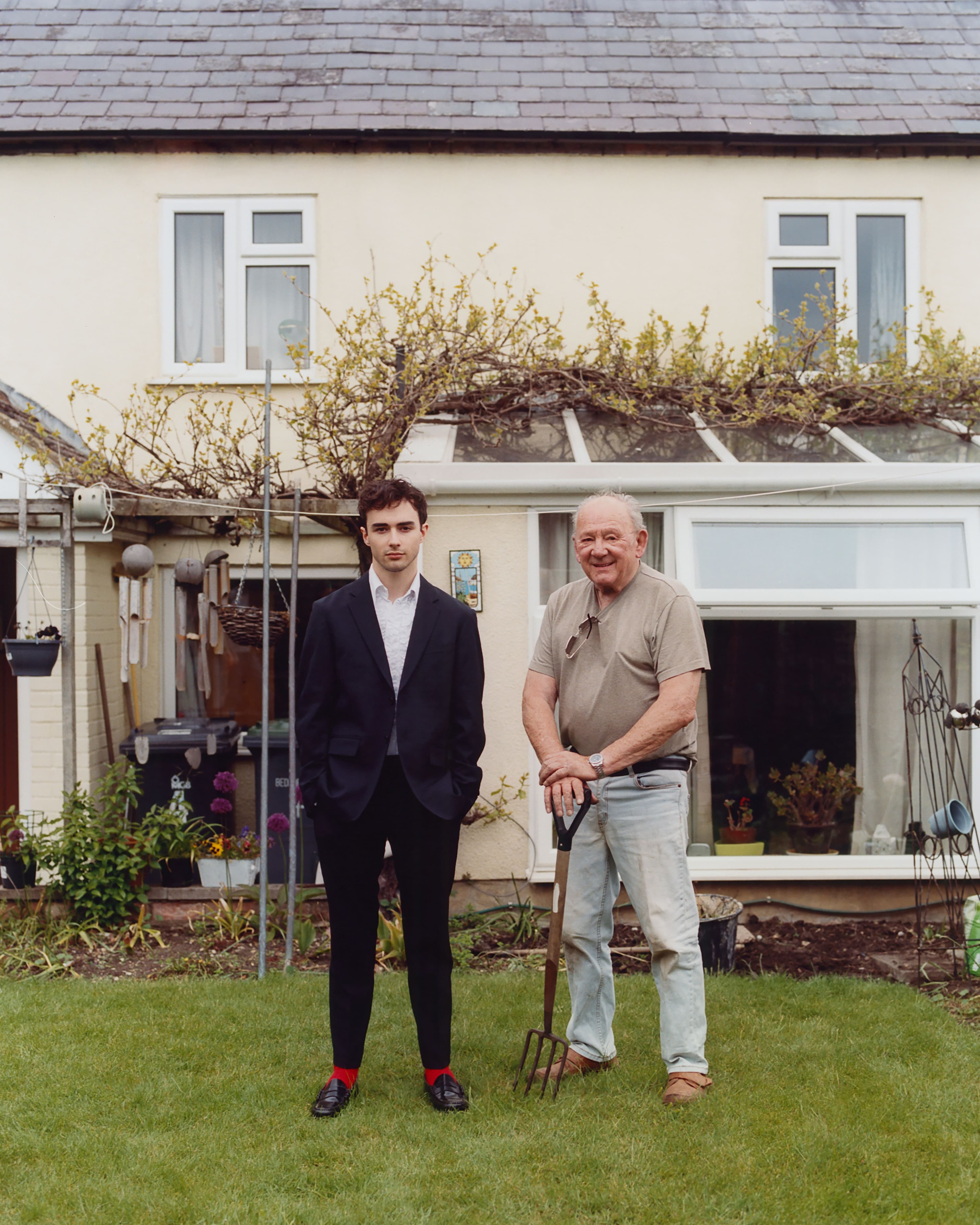
Vintage suit by JW Anderson. Vintage shirt.
When we speak, he’s in Bedford, England, a small town about an hour’s drive north of London where Templeman spent his childhood and dreamed of the career he’s currently building for himself. He’s at a friend’s place in the countryside getting ready to go back on tour, making music, and itching to connect with a world that, through the pandemic, has been a virtual fever dream. “I literally made this stuff in a room and all of sudden I’m playing it in a different place to people that have actually bought tickets to see me,“ Templeman says. “You can’t describe it.“ Almost all of Forever Isn’t Long Enough, like his past output, was written, recorded, and produced by himself in his room in Bedford, which makes its breadth of musical creativity, varied references, emotional depth, and overall polish all the more surprising. “The fact that kids my age were listening to me messing around in the studio just proved that anything is possible really,“ he says. “I can’t really wrap my head around that. The main thing is if it inspires someone else, then brilliant, that’s what I want to see—because I think all the best artists just start by messing around in the studio and having a bit of fun or teaching themselves how to do weird things on a guitar.“
Despite his age, Templeman has been making—and releasing—music for half a decade under his own name and his slightly more downbeat side project, Ariel Days. His catalogue of songs is borderline prolific, especially for the amount of production polish and detail that each contains. But Templeman has his eyes firmly set on a soon-to-be- released “début“ album: “It’s a massive milestone,“ he says. “I’ve got plenty of songs but I want to make sure the album is perfect because, especially with a début album, it’s a massive step in your career and it’s something you have to get right.“
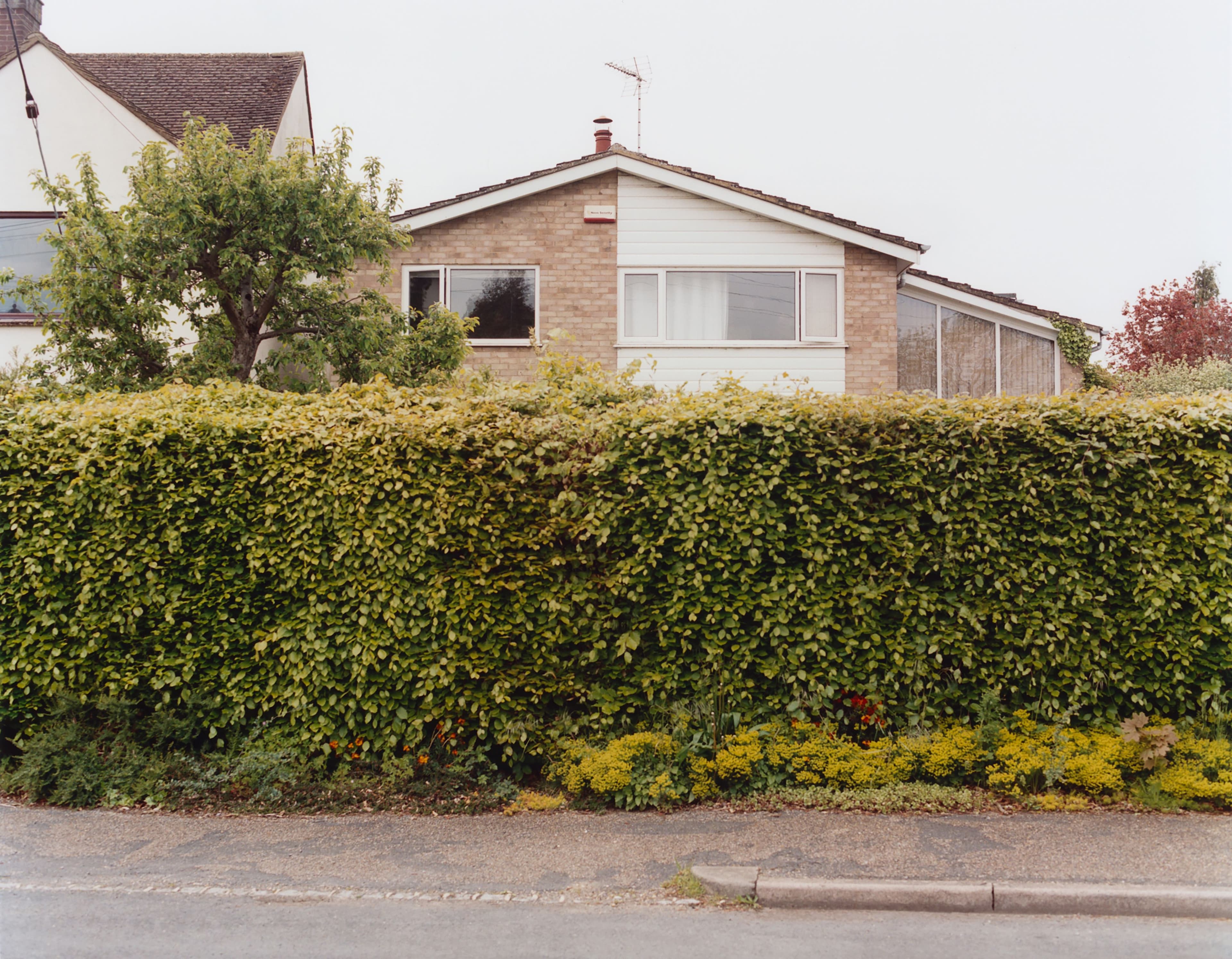
There’s an intriguing vein of perfectionism and wild exploration in Templeman’s music. “I grew up listening to progressive rock albums like Rush, Yes, Genesis, King Crimson, and the Beatles of course,“ he explains, “just listening to the way that they worked in the studio and the weird tape loops and experiments that they were doing back in the Sixties.“ The exploratory nature of his idols eventually rubbed off in the way he approaches his own music: “I want to get experimental with production. For me, I’d like to see if I can mess around, which is what makes it enjoyable every time I go into the studio.“
Templeman’s music is a mercurial mix of genres, decades, and production techniques that, when combined with his deft hand and swinging vocal delivery, start to paint a unique picture of the young man as an artist. “There has to be something that’s a bit loose, a bit real, not too quantized,“ he says, pointing to “Seventies records that were recorded on saturated tape, things that feel loose and a bit provocative.“ But the album itself took a bit of a journey over the last year, especially with the release of melancholy pop smashes like Dua Lipa’s Future Nostalgia. “I really liked how at that time she was really trying to spread the idea of positivity in such a dark, bleak time and I took inspiration from that,“ Templeman says. “As a result of that, [the album] took on a bittersweet stance, really. Before the pandemic it was almost like I was coming out of my shell and being honest, even if I wasn’t feeling too great. But when the pandemic hit, I actually thought, ’This is an SOS, we really need to put some positivity into the world,’ so it created this ball of bittersweet sugary pop music.“
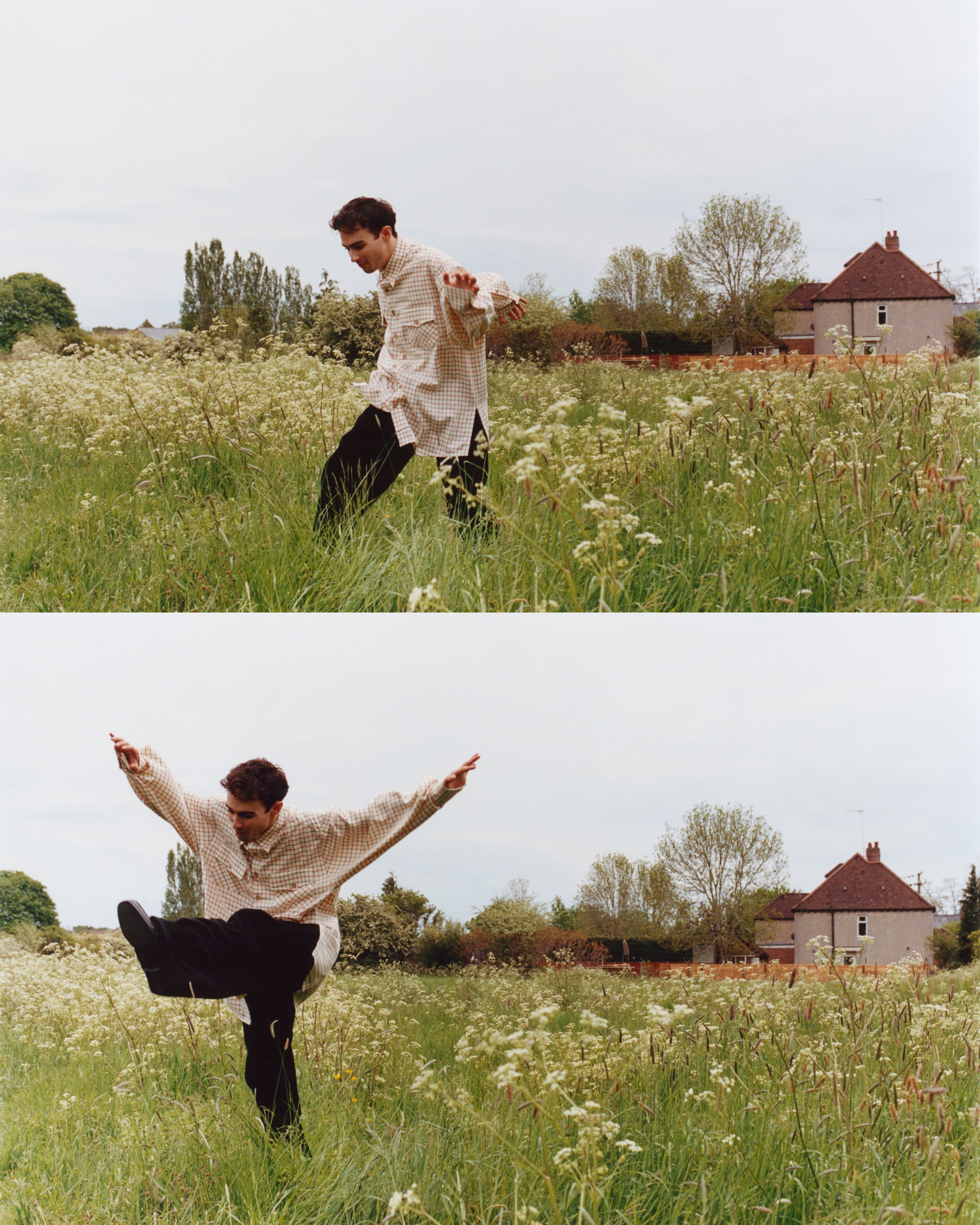
Shirt by S.S. Daley. Pants by Tommy Hilfiger.
That duality—the intersection of introspection and groove—runs through the whole album. Templeman’s lyrics are searching, posing questions to unnamed lovers about what could have been or what might still be. Upbeat singles carry dangerous names, like “Wait, I Lied“ and “Everybody’s Gonna Love Somebody,“ wherein Templeman laments, “Losing our spark, every day/Turn to me and I hear you say,/’Everybody’s gonna love somebody,’/But if it ain’t you then I love nobody/I just wanna go and hold somebody.“ It’s a melancholic, defiant, and infinitely danceable track that takes some of the call-and- response of math rock but pairs it with disco-inflected instruments and effects. “That’s the whole idea, that’s what my favorite thing in the world is,“ Templeman says, “taking a conventional pop song and then putting on my own little twists. That came from the things I grew up with, so for me it was progressive rock and all kinds of weird indie bands.“ The goal was to take an everyday pop single you might hear on BBC Radio 1 and transform it into something with unexpected elements and moments that make your ears perk up. “With production I tend to coat guitars in things that normally guitars wouldn’t be coated in,“ he elaborates. “For me it’s all about those washy, reverby guitars and the weird harmonies and the odd drum fills. It’s stuff like that that I try to do in order to make sure you can tell it’s me.“
This combination of influences and creative curios is reflected in his online presence, which is similarly unbounded and vibrant. “I think once the pandemic actually happened, I realized I needed to step up my game in terms of socials,“ Templeman says. “There were a lot of people stuck at home and I realized I could try and help them through the pandemic and enjoy things.“ He brought on some additional help to post across his channels but the creative spark is all Alfie: “I normally go by whatever I wake up feeling like. I just do my own thing, I guess, and post whatever I really want to. Sometimes I get in trouble, normally I don’t, so it’s somehow working,“ he says with a laugh.
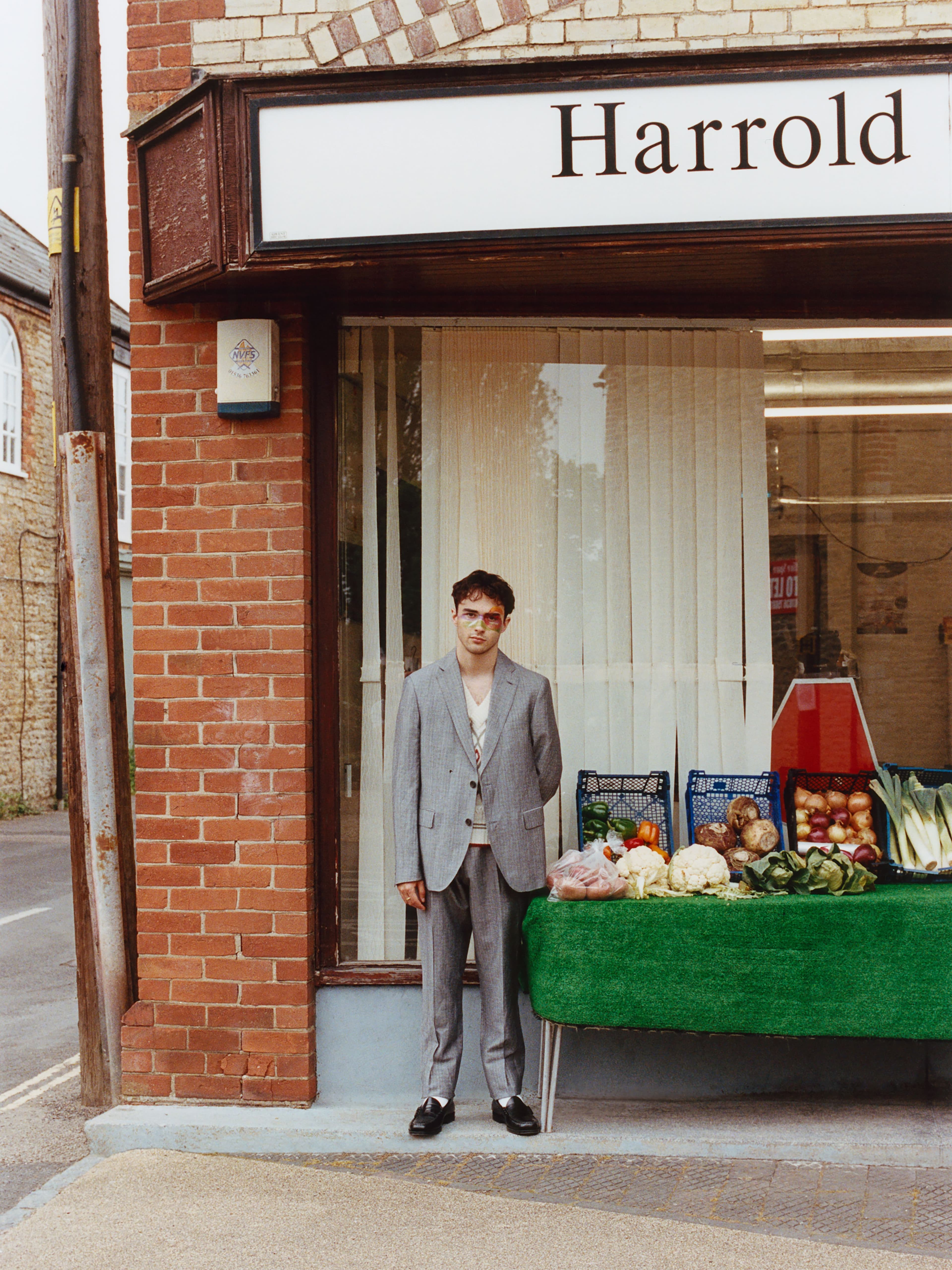
Suit by Tommy Hilfiger. Vest by S.S. Daley.
Part of Templeman’s growth isn’t only about getting back onstage or on Instagram, but about using his voice and his platform beyond just marketing his music. “Especially as someone that’s young, I think it’s important to use your platform in order to raise your voice. [We’re talking about] our future,“ he says. “At the end of the day my generation are the people that are going to have to grow up and have kids that will grow up in this climate. For me it’s about taking that step and actually educating yourself and making a difference. I’ve got over a hundred thousand people that follow me now and it would be pointless not to try and use that to make a bit of a difference, even if it’s a small difference. One person can see that and make a massive difference.“
Templeman isn’t alone, as more young artists are realizing their role no longer stops at “musician,“ “songwriter,“ or “producer.“ There are social feeds to populate, media appearances to which to show up, photo shoots to tackle, and interviews with magazines—like this one—to conduct. Much has been made of the mental toll all of this takes on the artists we love, let alone one who has so much career ahead of him and so much growing up still to do.
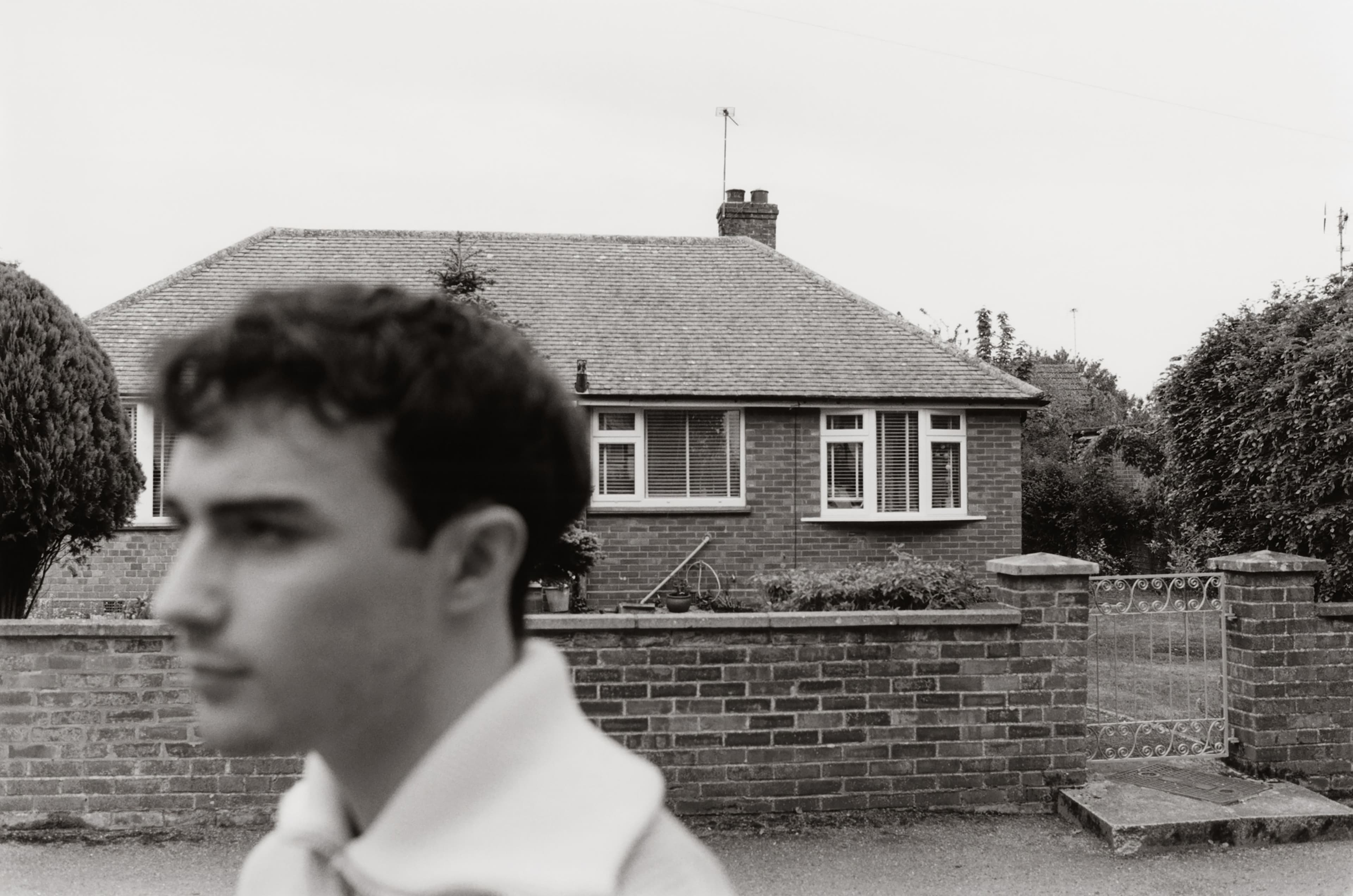
Sweater by AMI Alexandre Mattiussi
And yet, on the verge of stardom at another level, Templeman appears calm and curious about the journey ahead. Why shouldn’t he? Templeman created his future from a bedroom in Bedford, and now the whole world’s ready to meet the real Templeman: “I don’t think I’ve really figured out how to act differently.“
Forever Isn’t Long Enough is out now. Templeman’s North American tour begins on November 23 at Bowery Ballroom, New York. Read this story and many more in print by ordering our second issue here.
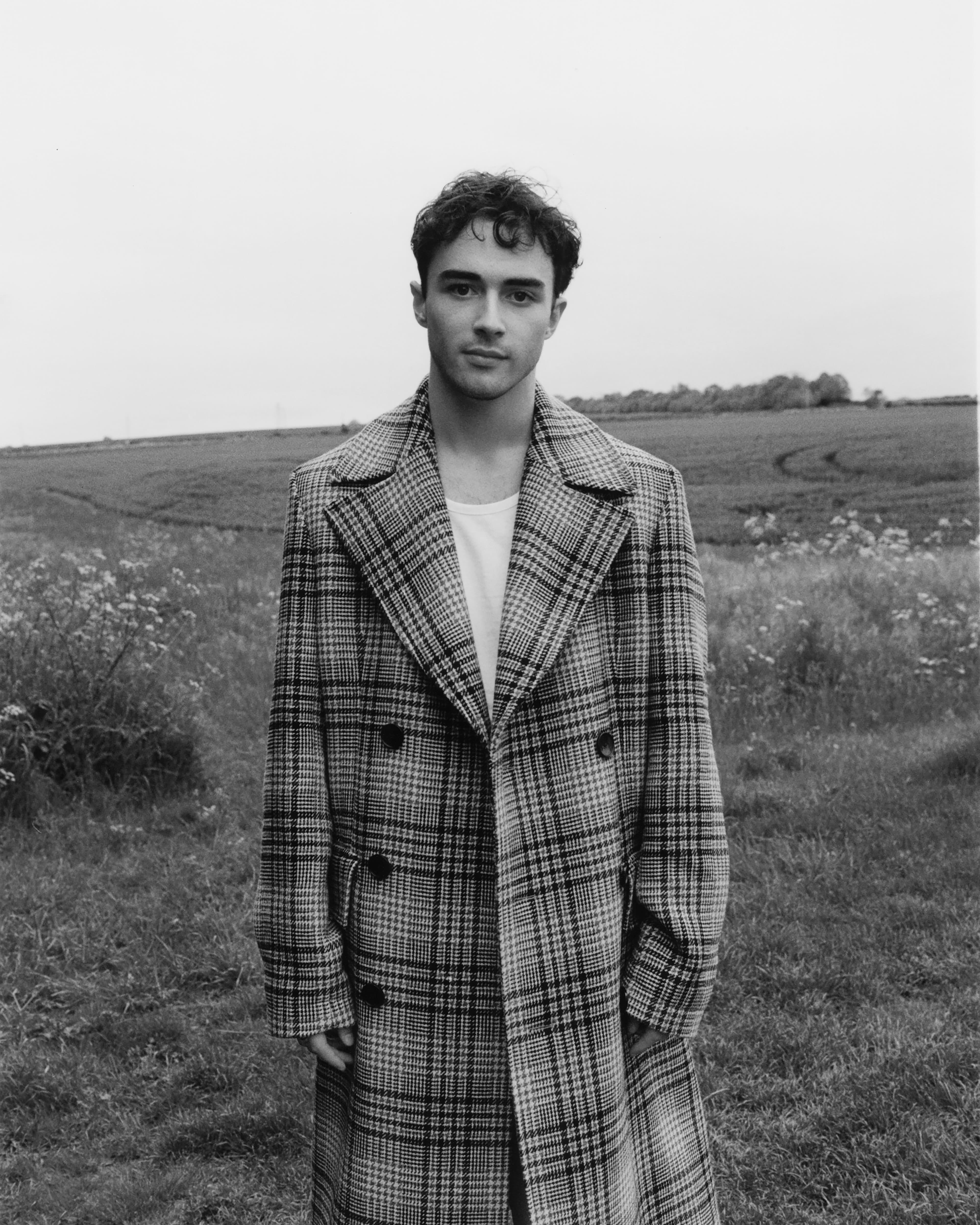
Coat by BOSS. T-shirt by Sunspel.
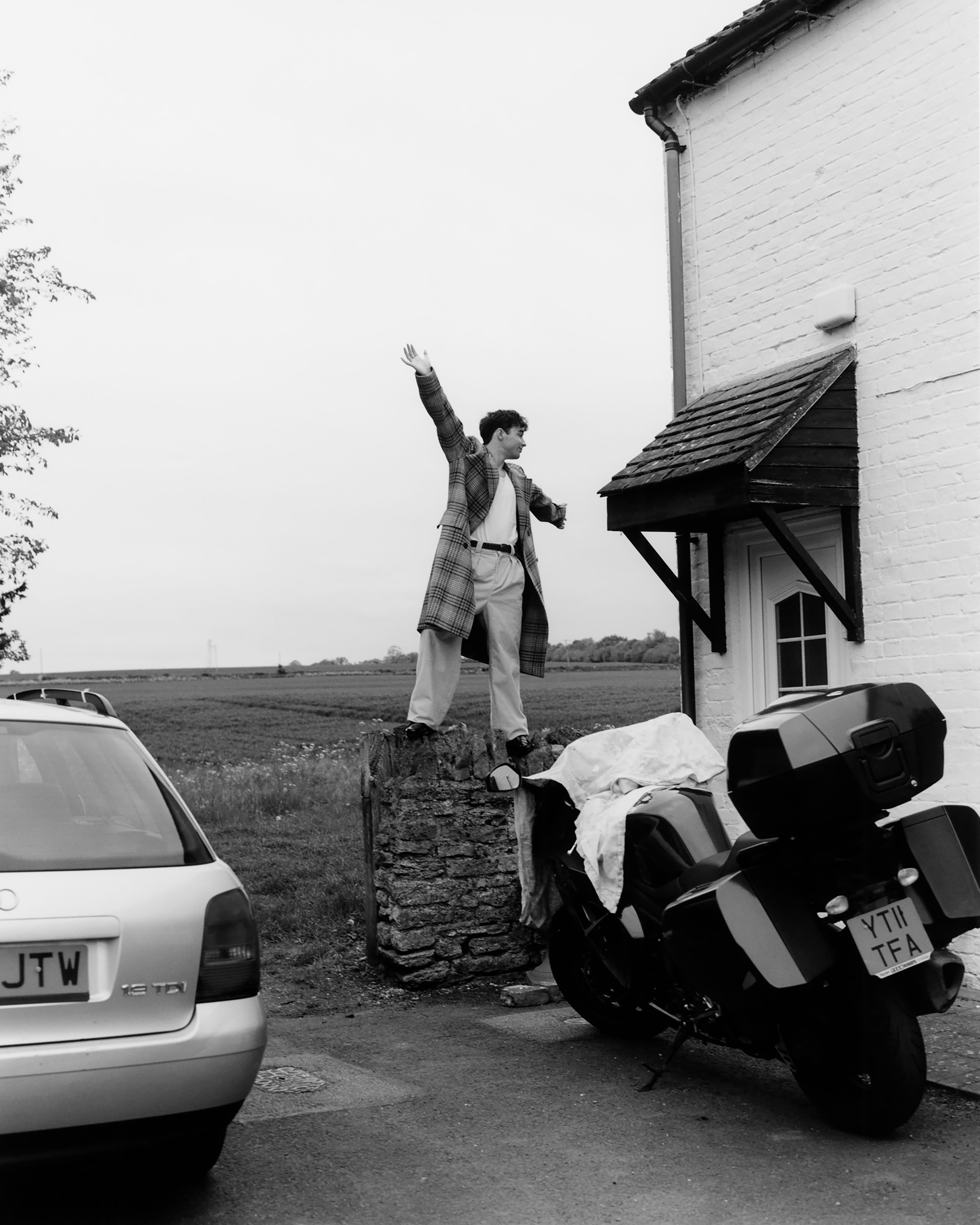
Coat by BOSS. T-shirt by Sunspel. Pants by S.S. Daley.
As a nonprofit arts and culture publication dedicated to educating, inspiring, and uplifting creatives, Cero Magazine depends on your donations to create stories like these. Please support our work here.






